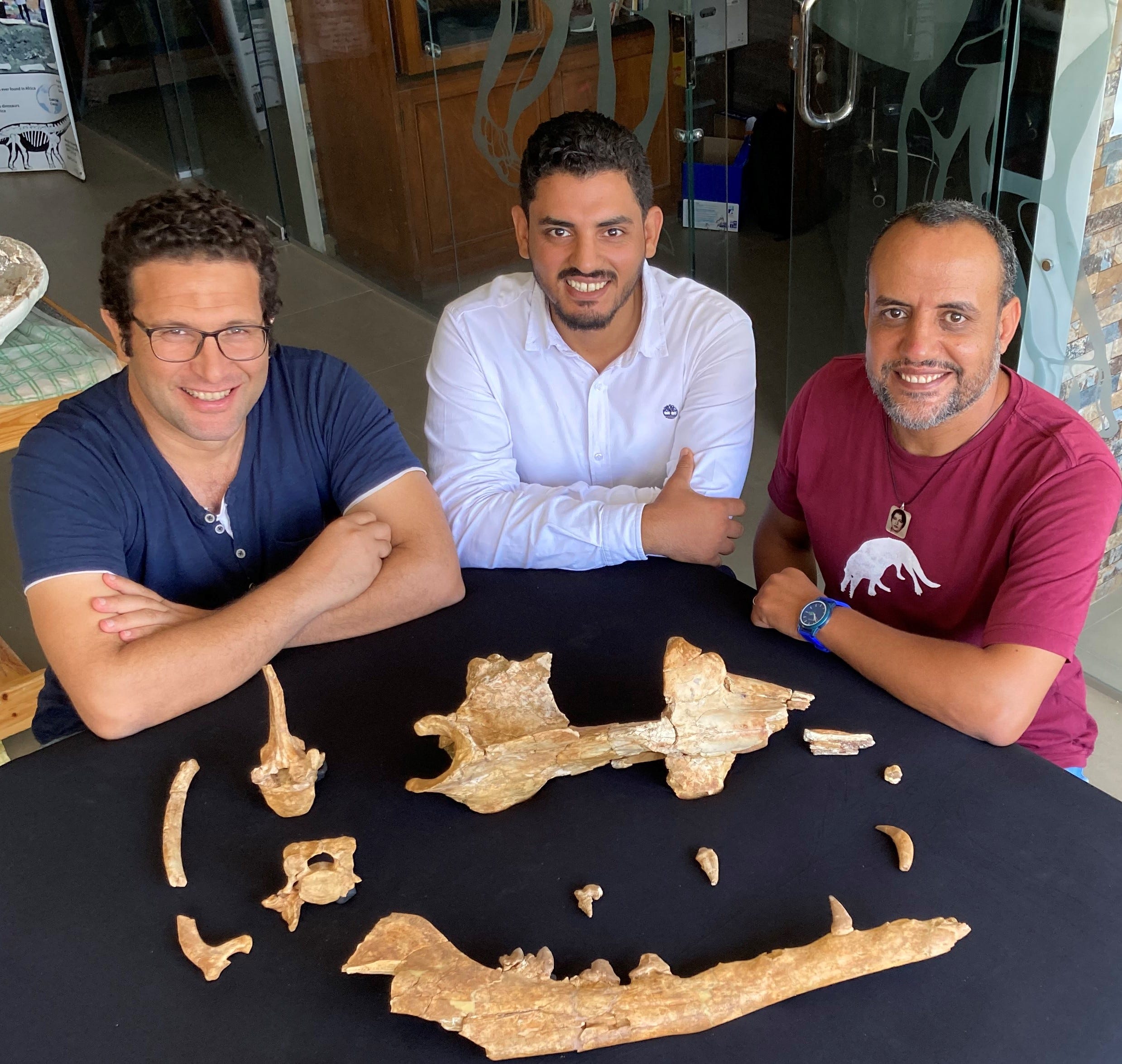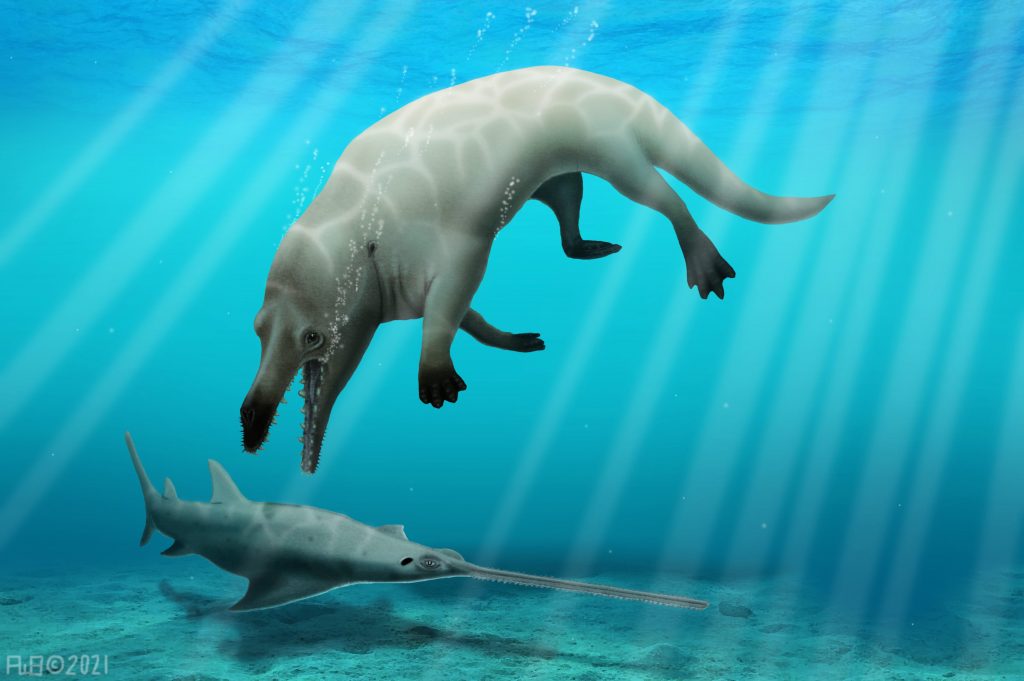
Abdullah Gohar
- Researchers in Egypt found the fossil of an extinct, four-legged whale that lived both on land and in the sea.
- It weighed around 1,300 pounds and had a head shaped like a jackal's, and a powerful jaw.
- It offers clues as to how whales transitioned from being land animals to the sea-dwellers they are today.
- Visit Insider's homepage for more stories.
Scientists in Egypt have discovered the 43-million-year-old fossil of a four-legged whale species that both walked on land and swam in the water.
The finding offers clues as to how early whales transitioned from being land dwellers to the sea creatures they are today, according to the findings published in the peer-reviewed journal Proceedings of the Royal Society B.
Named "Phiomicetus anubis," the newly-discovered species is part of a group of semiaquatic whales called Protocetids, which existed in the Eocene period, which was 56 million to 33.9 million years ago, per the report. Because they are amphibious, Protocetids represent a unique stage in whale evolution that still largely remains a mystery to researchers.
The Phiomectus anubis had an estimated length of 10 feet, weighed around 1,300 pounds, had a head shaped like a jackal's, and had a powerful jaw that gave it a "raptorial feeding style," according to the study.
Its skull was one of the main reasons why the research team named it after the Egyptian god of death Anubis, Abdullah Gohar, the lead author of the paper, told Insider.
"We discovered how fierce and deadly its powerful jaws are capable of tearing a wide range of prey ... this whale was a god of death to most of the animals that lived in its area," he said.

Abdullah Gohar
The fossil came from the Fayum Depression in Egypt's Western Desert, which was once an undersea region, where many other Protocetids have been discovered since German paleontologist Eberhard Fraas unearthed the first one in 1904.
Researchers studied the fossil at the Mansoura University Vertebrate Paleontology Center, in the lab of co-author and center founder Hesham Sallam.
-Hesham Sallam (@heshamsallam) August 25, 2021
Gohar also said this was the first time that an Arab team had discovered, scientifically described, and named a whale fossil.
"This paper represents a breakthrough for Arab paleontologists ... this science remained the preserve of foreign scientists for a long period of time, despite the richness of the Egyptian natural heritage with important fossils of the ancestors of whales," he said.
